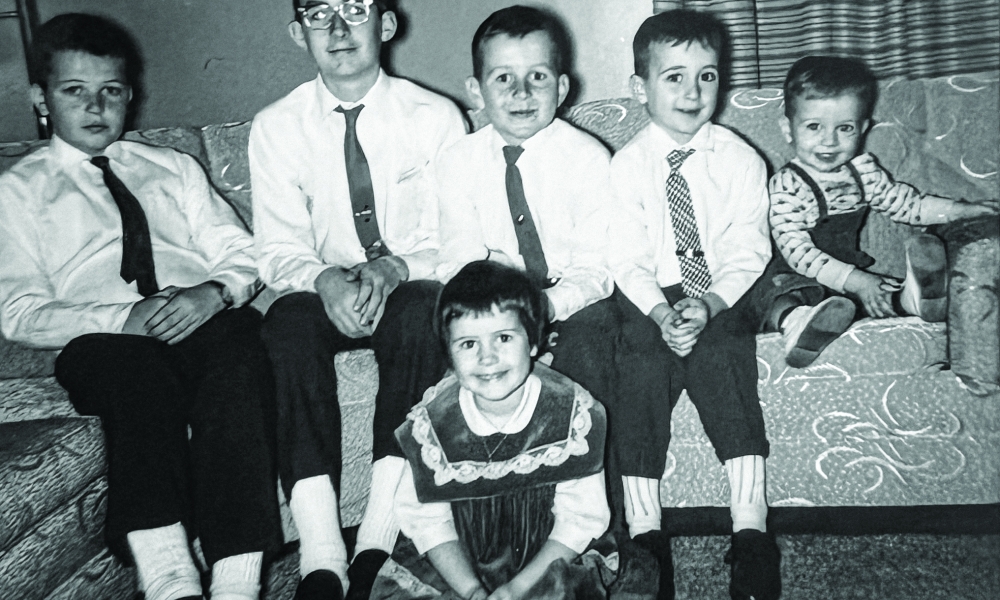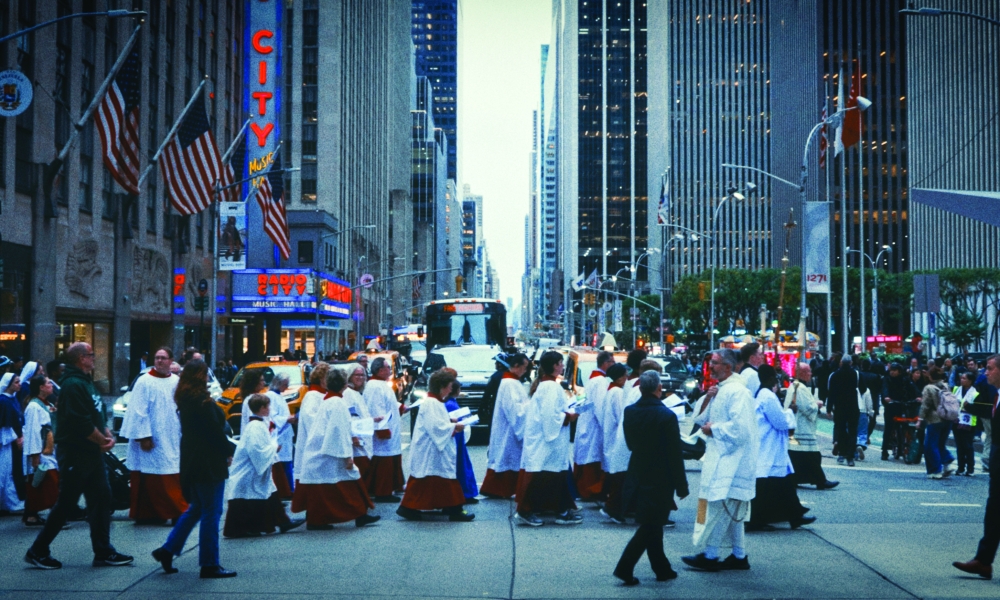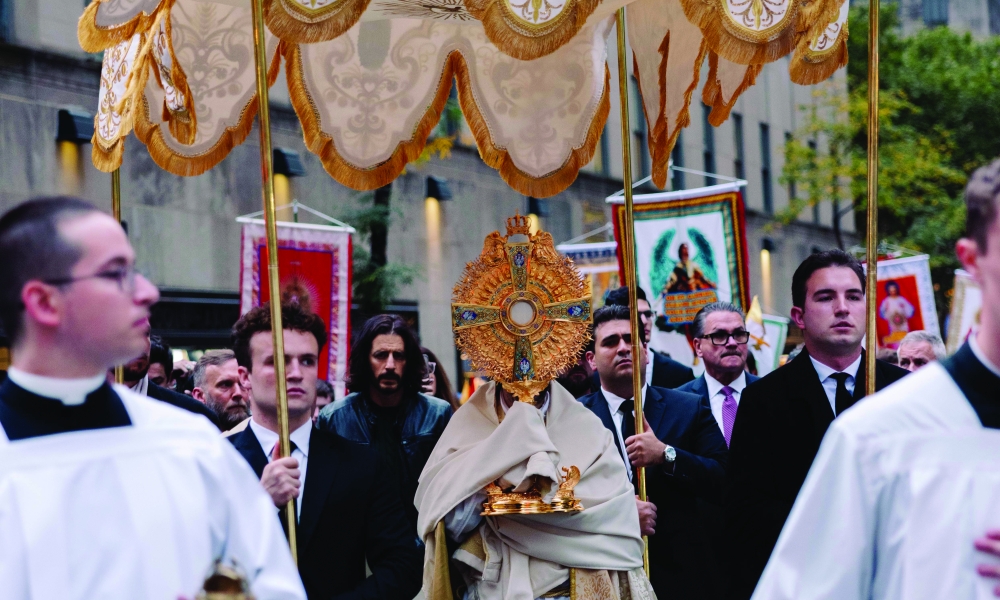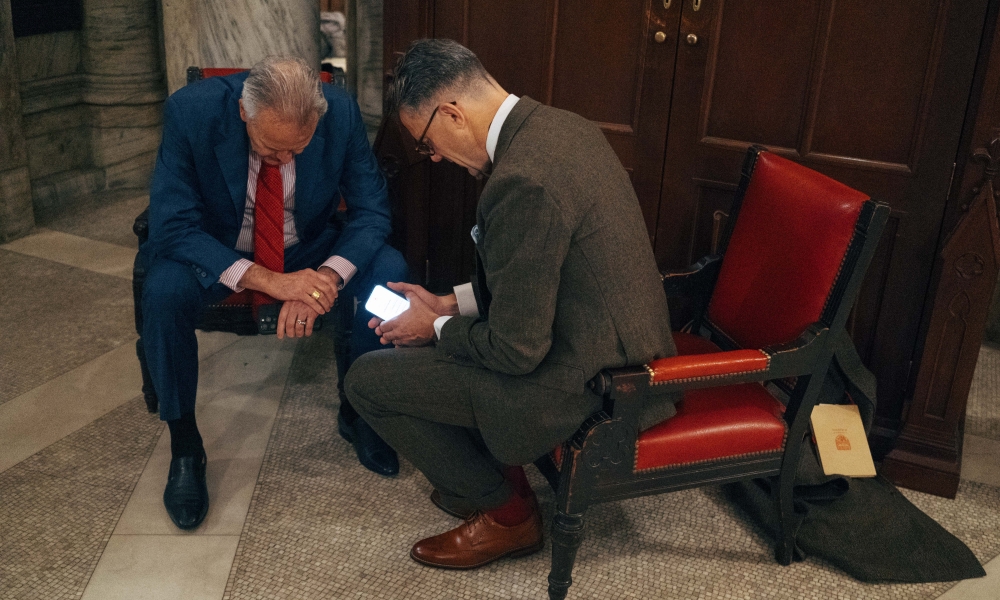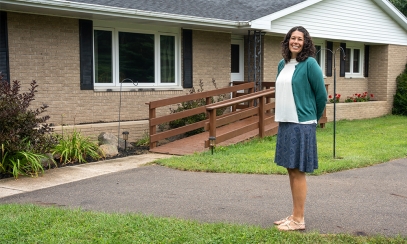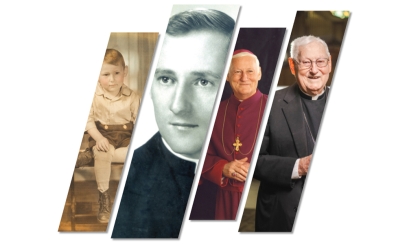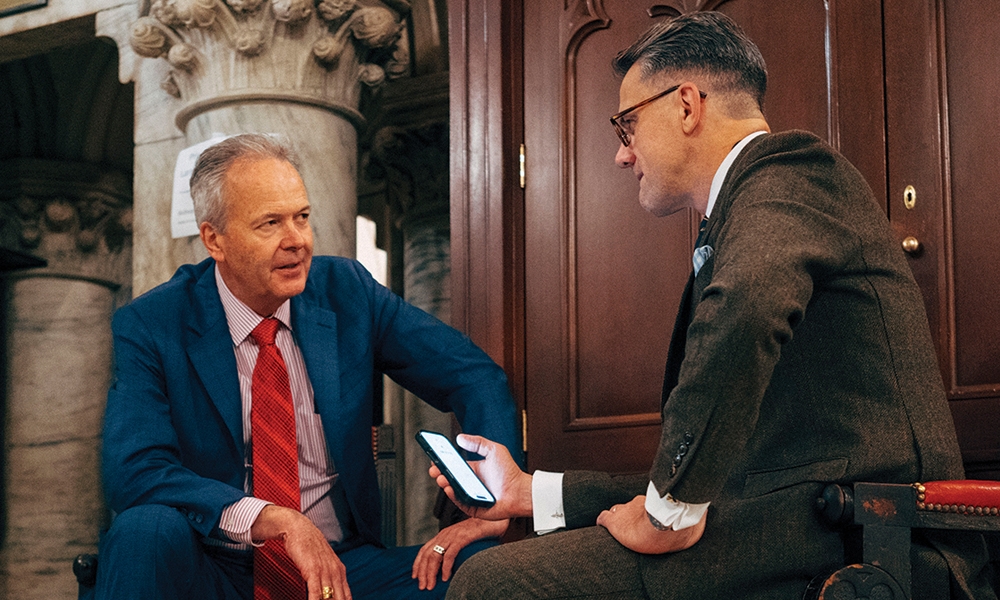
Led by Our Lord
Tim Busch’s eucharistic journey from Michigan to Manhattan
Tim Busch’s eucharistic journey from Michigan to Manhattan
The King of the Universe wends his way through the capital of the world. New York City’s annual Eucharistic Procession is a spectacle that’s as startling as it is sacred. Serried ranks of bishops, priests, deacons, religious, and thousands of laypeople process through the streets of midtown Manhattan. All are led by Our eucharistic Lord carried aloft in the monstrance. The rush-hour traffic stops. Commuters pause and, not infrequently, pray. Time in Time Square seems to stand still. And the inspiration for all of this? That is to be found in a small rural town within the Diocese of Lansing.
The King of the Universe wends his way through the capital of the world. New York City’s annual Eucharistic Procession is a spectacle that’s as startling as it is sacred. Serried ranks of bishops, priests, deacons, religious, and thousands of laypeople process through the streets of midtown Manhattan. All are led by Our eucharistic Lord carried aloft in the monstrance. The rush-hour traffic stops. Commuters pause and, not infrequently, pray. Time in Time Square seems to stand still. And the inspiration for all of this? That is to be found in a small rural town within the Diocese of Lansing.
“I think the most important thing we can do to catechize the world is eucharistic processions, and I first learned that lesson as a child at St. Dominic’s parish in Clinton, Michigan,” says Tim Busch, chairman and co-founder of the Napa Institute, which organizes the New York eucharistic procession.
“Our eucharistic procession at St. Dominic’s wasn't a big one. And it wasn't a long one. All we did was proceed out the front door, walk around the church, which is a very small church, and walk back in — but it's those experiences that caused me to understand that this is the way to catechize the world.”
Tim Busch is a man of many parts. A resident of Orange County in California since the early ‘80s, he is an attorney and founder of the Busch Firm, which specializes in high-net-worth estate planning as well as real estate and business transactions. He is also founder and chief executive of Pacific Hospitality Group, a hotel development and management company that owns and manages eight hotels in the Golden State. Amid the busyness of business, Busch’s daily schedule always affords a primacy to prayer.
“Yeah, I think it's the ultimate weapon against the evil one, and you have to create that time,” he says, “I pray the Liturgy of the Hours, I've been doing that for about 20 years; I go to Mass every single day, I’ve been doing that for 36 years; and then I pray a rosary every day and the Divine Chaplet every day — so I'm probably spending an hour to an hour-and-a-half in prayer every day.”
Meanwhile, Busch sets aside an hour every week for adoration of the Blessed Sacrament, most often in the company of his team at the Napa Institute. So, does such an ambitious religious regimen drain time, or deflect attention, away from the other important aspects of daily life?
No, says Busch. Quite the opposite.
“I tell people that eucharistic adoration is a time-creator not a time-eater — you can 10x your time in adoration because through adoration you slow down, you hear the Holy Spirit speak to you, and provide you with direction and grace so that you're heading down the right path.”
That divinely prompted path has witnessed Tim and his wife, Steph, use their wealth to both found and fund many Catholic organizations. Together they established St. Anne School and JSerra Catholic High School, both in southern Orange County. In 2016, the Catholic University of America in Washington, D.C., renamed their business school as the Tim and Steph Busch School of Business and Economics, in recognition of the Busch family’s generous support.
Meanwhile Tim co-founded the Magis Institute in conjunction with the physicist and Jesuit priest, Father Robert Spitzer, S.J., to promote a public understanding of the complementarity of faith, reason, and science. The two men also combined to create the Napa Institute which Busch describes as his “calling.”
“The Napa Institute is a Catholic lifestyle organization,” he explains, “it's about integrating our lifestyle with our faith, our work with our faith, and we do that in so many ways.”
“We've abandoned Judeo-Christian principles in this country, and we have got to put them back because without them democracy will not work. It's got to be virtuous, and you need religion to have virtue.”
We meet in the sacristy of St. Patrick’s Cathedral in New York. Busch’s hometown of Clinton lies over 600 miles — and six decades away — from his present situation in life. The memory of his upbringing, though, is still fresh and its influence still formative.
“I worked intimately in the local parish,” he recalls, “I took care of the cemetery, cleaned the church, did the bulletins. We always had diocesan priests, but I got a lot of my spiritual direction from the Dominican Sisters of Adrian, who taught at St. Elizabeth's Catholic School in Tecumseh. It’s no longer open, but it was through those religious sisters that I actually gained a lot of spirituality.”
Busch’s father, Joseph, was a cradle Catholic. He founded the family supermarket business, which today boasts 16 stores across Michigan. His mother, Marcheta, was a convert from Methodism.
“She was a devout Catholic until the day she died at 91 years old,” says Busch, “she was anointed, had the Apostolic Pardon, and died two minutes later.”
Tim is the second oldest of six Busch children. Five boys. One girl. Growing up, family life consisted of work and play and study.
“We went to school. We were involved in athletics. I delivered newspapers, painted houses, mowed lawns, worked in my dad’s supermarket business,” says Busch, “Everybody knew everybody in Clinton. It was a great life in a small town.”
It was while at St. Elizabeth school that Busch first became a daily communicant. His youthful piety led many in St. Dominic parish to predict a pending vocation to the priesthood. That wasn’t to be. Dei gratia. Instead, Tim and Steph Busch have been married for 40 years and have two children and 11 grandchildren. Deo gratias.
As we converse inside St. Patrick’s sacristy, outside, the cathedral pews are filling with thousands of pilgrims, each prayerfully preparing to listen to eucharistic meditations delivered by Cardinal Giorgio Marengo from Mongolia and Father Ambrose Criste, a Norbertine priest from St. Michael's Abbey in Orange County. To the surprise of most, and delight of all, the actor Jonathan Roumie would also deliver a moving, personal reflection on the Eucharist as his “express train to Heaven.” Holy Mass then follows with Cardinal Seán O'Malley, Emeritus Archbishop of Boston, as principal celebrant and homilist.
It is then out and into the streets of Manhattan with the Holy Eucharist at the helm.
“Manhattan is a secular city, like most big cities, but when Jesus goes out there, we don't have to say anything, we just have to show up,” says Busch. “A eucharistic procession is the most powerful evangelical tool we have in the Church, and we need to continue to resurrect it.”
Busch aspires to take a future procession to Paris. As for the future of Napa? He also entrusts that to Our Lord in the Eucharist: “I don't know where it's going … and that's good.”
David Kerr is the director of communications for the Diocese of Lansing.

